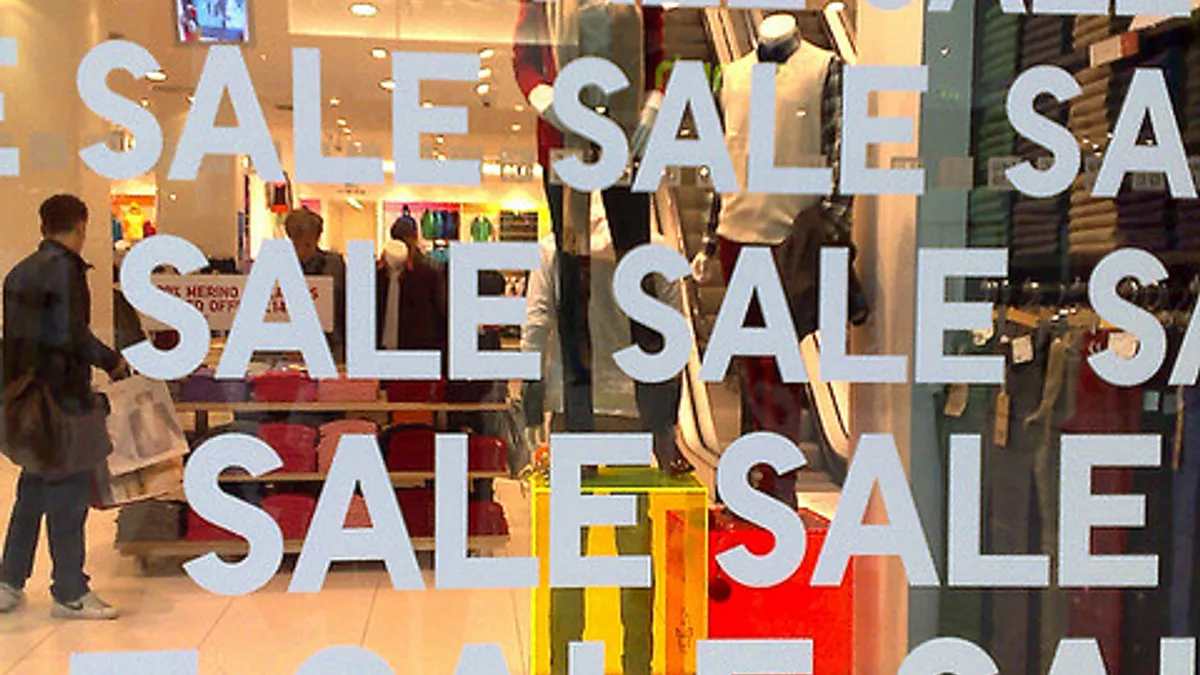Dive Brief:
-
The Great Recession of 2008 appears to have had an effect on consumers similar to that of the Great Depression—a consumer wary of spending and looking for a deal even in better times, according to reporting by CNBC.
-
That has also changed priorities, with Americans putting their money into longer-lasting items, necessities, experiences like travel and eating out, and things they perceive as investments, like their homes.
-
The buy local movement has also benefited somewhat, with Americans boosting their spending at smaller retailers ($50 million or less in sales) more than at than larger ones, according to MasterCard SpendingPulse.
Dive Insight:
Apparel retailers appear to be suffering the most from Americans’ sticky attraction to finding deals and their reluctance to spend. America's workplace culture is also changing, with fewer Americans in need of work clothes that differ from their everyday clothes thanks to a more relaxed work environment in many companies.
Sarah Quinlan, MasterCard senior vice president and head of Market Insights, noted that this is why athleisure sales are growing. And Quinlan said consumers are also interested in meaningful experiences, in addition to good value.
That’s why travel and restaurants are doing well even though those experiences are fleeting and why many small local businesses, which can offer relationships with and curated experiences for customers in several ways, are seeing more growth in recent months. In fact, those businesses grew even during the recession, according to research from the Institute for Local Self-Reliance.
But retail chains, even apparel retailers, are capable of meeting consumers where they want to be, Gap CEO Abe Peck told CNBC.
"From where I sit, across all of our businesses, our job is to deliver regardless of the noise that's out there today and what I see is a consumer who has confidence, I see dollars being spent and I see an opportunity for us to continue to get more than our fair share as I look forward and I am very optimistic," he said.
















